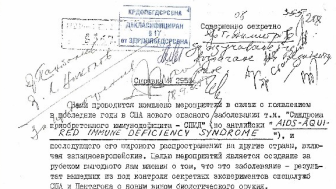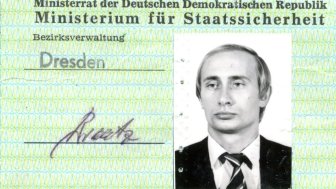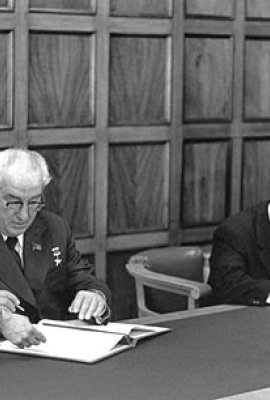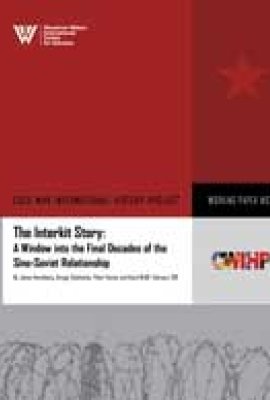Douglas Selvage
Former Title VIII Short-Term Scholar
Professional Affiliation
Research Associate (wissenschaftlicher Mitarbeiter) at the Institute for History of the Humboldt University in Berlin.
Expert Bio
Dr. Douglas Selvage is a Research Associate (wissenschaftlicher Mitarbeiter) at the Institute for History of the Humboldt University in Berlin. He prevously served as acting director for the historical research project, “The GDR, the Ministry for State Security, and the CSCE Process, 1973-1989,” in the Education and Research Division of the Office of the Federal Commissioner for the Stasi Records in Berlin. He has published widely on the CSCE process, Polish-German relations under communism, and the history of the Soviet bloc. Previously, he also directed a grant project funded by the National Endowment for the Humanities to translate Warsaw Pact documents into English for the Parallel History Project (PHP) on Collective Security. From 2001-2006, he worked at the Historian’s Office of the U.S. Department of State, where his publications included Foreign Relations of the United States, 1969-1976: European Security, 1969-76, and a co-edited joint publication with the Russian Ministry of Foreign Affairs, Soviet-American Relations: The Détente Years, 1969-1972.
Wilson Center Project
"Operation 'Pandemic': Bulgarian State Security, the East German Ministry for State Security, and the Soviet Bloc's AIDS Disinformation Campaign, 1983-1989"
Project Summary
One of the KGB’s most infamous disinformation campaigns began in 1983 with the allegation in an Indian newspaper that the HIV virus that led to AIDS did not develop in monkeys and spread to human beings in Africa; instead, the virus was created in a U.S. germ warfare laboratory at Fort Dettrick. The campaign took on new vigor in 1986 as East German scientists Jakob und Lilli Segal began to publish research that drew attention in the West, especially West Germany, to the “Fort Detrick – AIDS thesis.” Both allegedly worked on behalf of the East German Ministry for State Security (MfS), the KGB, or both. Based on new findings from the Bulgarian and former East German archives, the planned article will provide new insights into the origins, course and outcome of the campaign. It will also clarify the ongoing impact of the campaign after the end of the Cold War.
Major Publications
- “Operation ‘Synonym’: Soviet-Bloc Active Measures and the Helsinki Process, 1976-1983,” in Buŀhak, Wŀadysŀaw, and Friis, Thomas Wegener, eds., Need to Know: Intelligence and Politics. Western and Eastern Perspectives (Warsaw: Instytut Pamięci Narodowej, forthcoming 2013).
- The Superpowers and the Conference on Security and Cooperation in Europe, 1977-1983: Human Rights, Nuclear Weapons, and Western Europe,” in Peter, Matthias, and Wentker, Hermann, eds., Die KSZE im Ost-West Konflikt: Internationale Politik und gesellschaftliche Transformation (1975-1990) (München: Oldenbourg, 2012).
- Transforming the Soviet Sphere of Influence? U.S.-Soviet Détente and Eastern Europe, 1969-1976, Diplomatic History 33:4 (Sept. 2009), pp. 671-687.
Insight & Analysis by Douglas Selvage
- Blog post
- Cold War
Moscow, “Bioweapons,” and Ukraine: From Cold War “Active Measures” to Putin’s War Propaganda

- Blog post
- Cold War
Operation “Denver”: KGB and Stasi Disinformation regarding AIDS

- Blog post
- Cold War
Vladimir Putin’s Stasi ID: A Press Sensation and Its Historical Reality

- Past event
- Cold War
2015 Ahtisaari Symposium: New Evidence and Perspectives on the Helsinki Accords

- Publication
- Cold War
KGB/Stasi Cooperation

- Publication
- Cold War
Poland and the Sino-Soviet Rift, 1963-1965

- Publication
- Cold War
The Warsaw Pact and Nuclear Nonproliferation, 1963-1965
